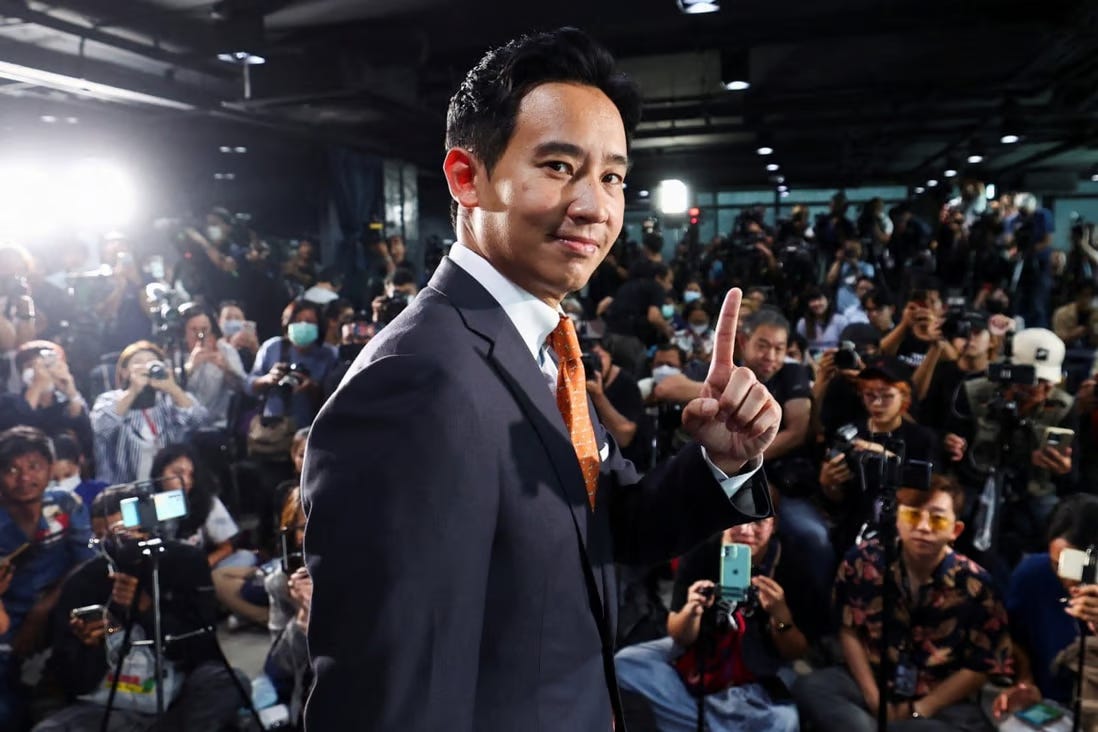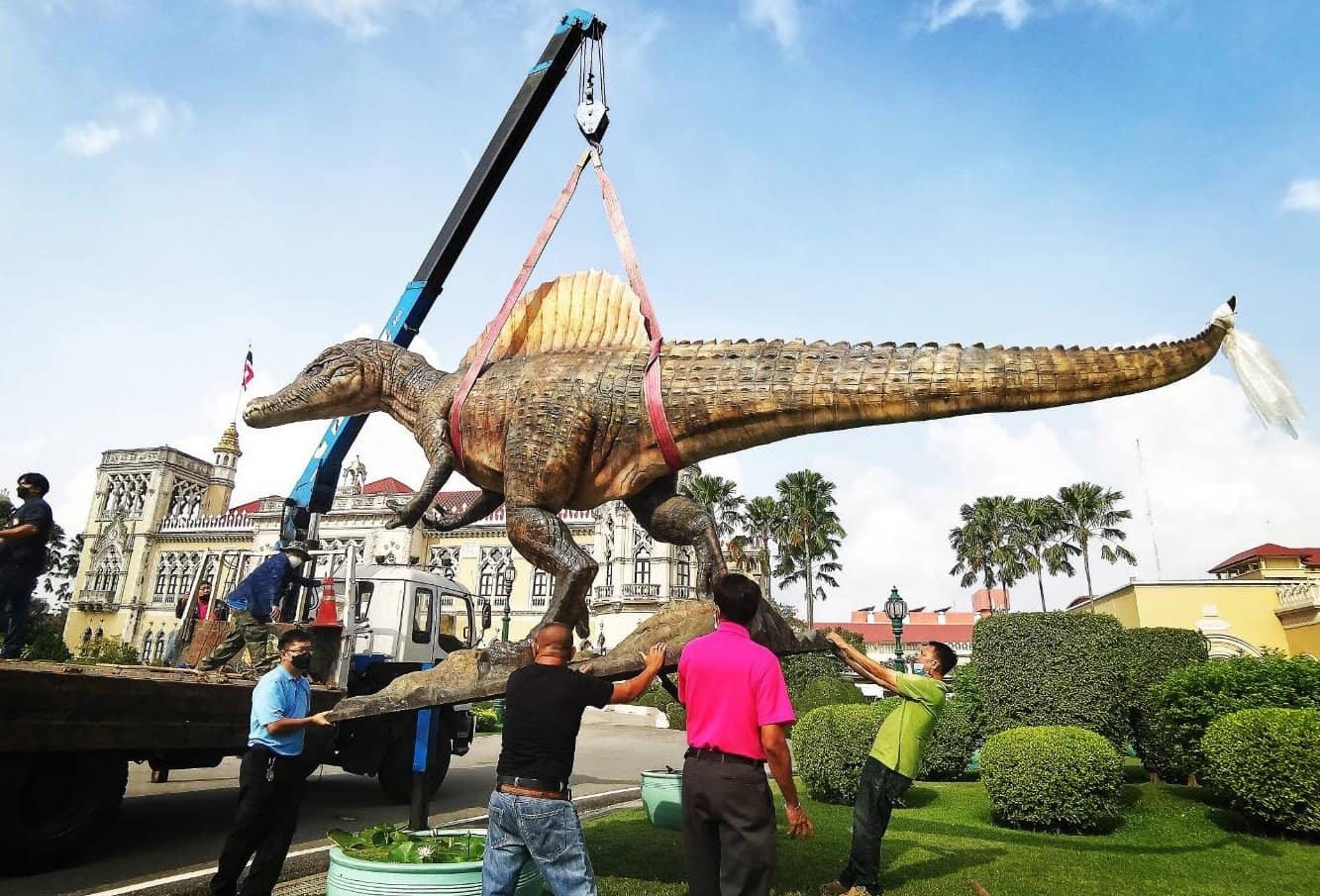The last stand of the dinosaurs
The Move Forward party's stunning election victory has changed Thailand forever. The traditional elite will try everything they can to keep them out of power.
A Thai language version of this article is available here.
“I am Pita Limjaroenrat, the next prime minister of Thailand,” declared the 42-year-old leader of the progressive Move Forward party in a speech to cheering supporters after winning a stunning victory in the May 14 general election. “The people of Thailand have already spoken their wish, and I am ready to be the prime minister for all of you whether you agree with me or you disagree with me.”
Move Forward shocked the Thai establishment with its unexpected victory, winning 14.4 million party list votes, representing 38 percent of the electorate. The party performed remarkably well in Bangkok, winning 32 of the capital’s 33 constituencies. Overall they won 151 seats. The result was all the more remarkable because unlike all other major parties, Move Forward did not engage in vote buying and bribery, and did not rely on patronage networks to win support.
In second place was Pheu Thai, which had been widely expected to win a landslide but ended up being eclipsed by Move Forward. Pheu Thai got 29 percent of party list votes cast, and fared well in constituency elections, giving it 141 seats.
Move Forward and Pheu Thai both campaigned on a platform of decisively ending the influence of the “uncles” who seized power in a coup in 2014 — Prayut Chan-ocha and Prawit Wongsuwan. Their combined party list vote share of 67 percent shows that an overwhelming majority of Thais — two thirds — have rejected the ruinous rule of the dinosaurs and want real democracy.
But as Thitinan Pongsudhirak, professor of international relations at Chulalongkorn University wrote in an article for Nikkei Asia: “The new dawn that Thai voters endorsed last month is being vehemently resisted by an entrenched old political order.”
He added: “Powerful saboteurs are at work to stymie Move Forward's comprehensive agenda to start unwinding Thailand's monarchy-centered sociopolitical hierarchy and move toward greater egalitarianism and reform of traditional power centers to unleash competitive economic forces and talents that have been held back for so long. The military and monarchy are now at the front and center of where debate and action will take place.”
Unfortunately, the dinosaurs remain unwilling to face reality. They will not give up without a fight.



